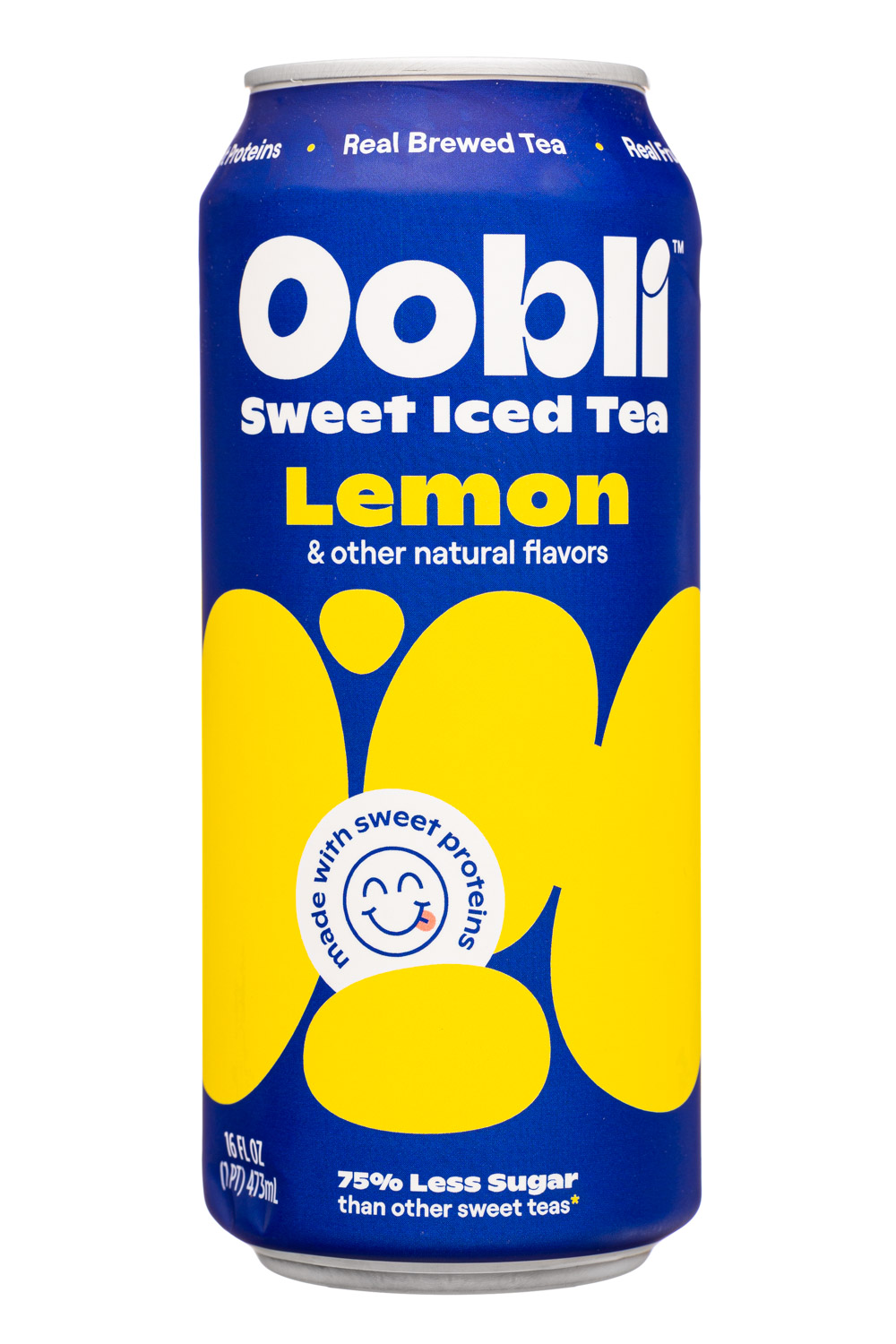Oobli Sweet Iced Tea
by Oobli, Inc
Review: Oobli Sweet Iced Tea

Covers Products: Lemon, Mango Yuzu, Peach
Oobli is a line of RTD teas that are marketed as having 75% less sugar than other sweet tea beverages. The product line features three 16 oz varieties, including Lemon, Peach, and Mango Yuzu.
So how do they achieve the lower sugar profile? Rather than taking the more common approach of using one of the established zero calorie sweeteners, Oobli uses oubli fruit sweet protein. According to the company, sweet proteins “provide a sugar-like sweetness but none of the negative health impacts.”
On top of that, the products contain agave syrup and have an ingredient list that looks pretty similar to other premium RTD teas on the market today, including natural flavors, tea extract, and juice concentrates (1% - 9% juice, depending on the variety). The end result is products that have 50-60 calories and 7 grams of sugar per 16 ounce can.
When it comes to flavor, all three are light and mildly sweet. There’s no sweetener aftertaste, which is always of concern when we try a new sweetener. In the case of the Lemon and Peach SKUs, which both use a base of black tea, Oobli has created nice translations of two of the most popular RTD tea flavors. Both taste nice, although the aroma of Peach is a bit too strong for our liking. The final variety, Mango Yuzu, is made with a base of green tea and features mango puree and yuzu juice. This has a lighter and more fruit-forward flavor than the other two.
As mentioned above, Oobli uses a 16 ounce can and features a matte shrink sleeve label. The background of the label is navy blue and the white is used for most of the important text. This does a nice job of taking your eye directly to the Oobli logo and its “Sweet Iced Tea” (or “Sweet Green Tea”) tagline. Beneath this sits the flavor name and a couple of abstract oval shapes, both of which are in an accent color.
On top of this, the front panel features a callout for “75% less sugar than other sweet teas” as well as a callout for “made with sweet proteins” (along with a yum emoji). While the sugar callout is helpful, it would be good to have a front panel callout for the specific amount of added sugar and, if space permitted, calories in the product.
However, we are definitely not a fan of the callout for sweet proteins. First, using the word “protein” is in itself confusing as the drink has no protein content listed in its nutrition panel. Second, the brand’s use of sweet protein is a means to an end rather than a benefit that consumers will care about. It’s going to immediately require consumer education and shift from the real value proposition of good taste and lower sugar and calories – which should speak for themselves.
In the end, we appreciate that Oobli is trying to take a unique approach to crafting low sugar beverages and we think that they’ve done a nice job with these RTD tea entries. Shoring up the value proposition – and moving the sweet protein messaging to the background – will definitely help this brand reach its full potential.





